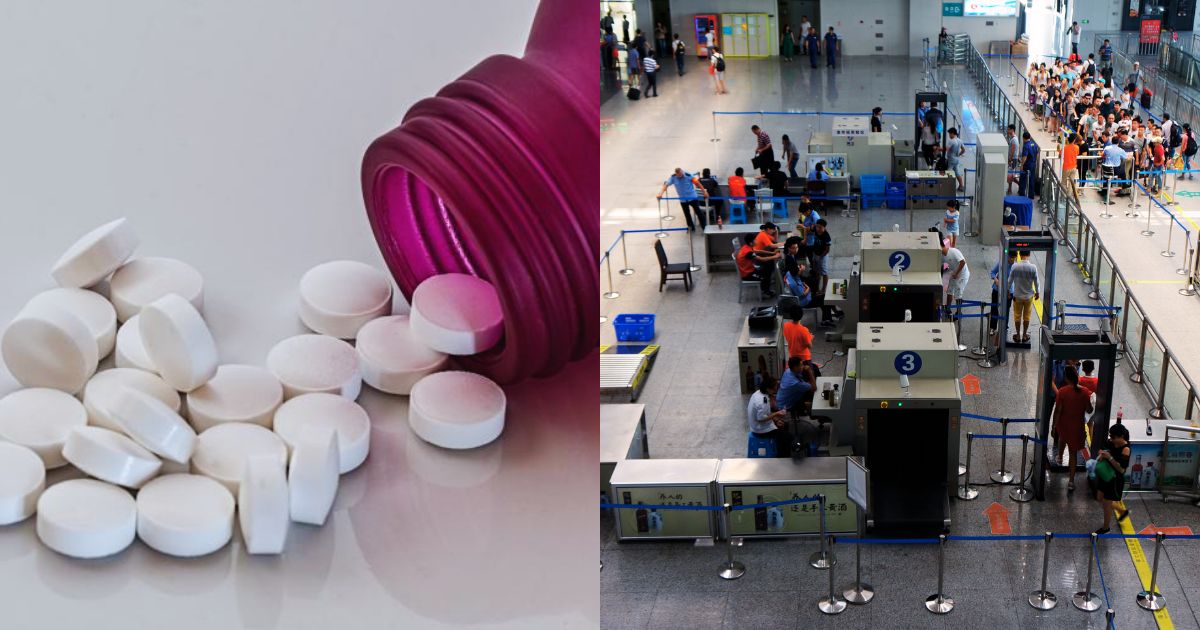Trigger Warning: This article mentions details about narcotics.
The Transportation Security Administration (TSA) has banned many items and created stricter rules for flying abroad. Earlier, they restricted camp stoves, power banks, etc. Still, flyers are now being urged to check medication rules before going oversees, as bringing certain painkillers into some countries could lead to serious legal consequences, including fines or imprisonment.
While packing paracetamol and ibuprofen is common for party holidays and hangover recovery, some stronger medications require extra caution. Medicines like antihistamines and motion sickness tablets are generally fine to bring. However, others—particularly those considered controlled substances—can be illegal depending on your destination.
As per the outlet Tyla, authorities warn that tourists should ensure any medication they carry complies with the UK’s Misuse of Drugs Act 1971. If a drug is classified as controlled, you must bring a doctor’s special letter that cites the medication prescribed, dosage, strength, frequency, and the prescriber’s signature and professional registration.
For the first time, a passenger can carry up to three months’ supply, but if your stay is longer, you’ll also need a personal export license from the Home Office. According to The Mirror, people traveling to popular holiday destinations like Thailand and the United Arab Emirates will be in trouble if they get codeine—an ingredient in popular medications like Nurofen Plus and Solpadeine—without a proper prescription.
Other names of special medicines include Tramadol and Morphine (Morphine belongs to the group of drugs called narcotic analgesics, or pain relief medicines). If you are wondering why these drugs have such strict rules, it’s because these are common pills that are misused, especially on holidays. Too many people have succumbed to drug addiction because of these pills.
यो पोस्ट Instagram मा हेर्नुहोस्
Meanwhile, other prescribed medicines, such as anti-anxiety pills (which are very common), ADHD medication, and sleeping pills, also require proper prescriptions while traveling. Moreover, countries like Greece, Japan, Mexico, and India are particularly vigilant about what medicines are allowed through customs.
Similarly, last May, TSA issued clear guidelines for diabetic passengers flying within the U.S.; People carrying medical items should be prepared for separate screening. According to the agency, officers will inspect these supplies and may conduct additional testing. However, the good news is that if your condition requires you to carry extra stuff, the TSA would allow people to bring liquids such as juice boxes over the usual 3.4-ounce limit, but expect those items to undergo additional strict screening.
View this post on Instagram
Meanwhile, for people with severe levels of diabetes, the ones who need to carry injections and machines, they need to do a self-pat-down while officers test their hands for any traces of explosives. It’s important to remember that countries have different baggage weight criteria and certain strict rules for carrying medicines and special items.
View this post on Instagram
For Americans flying within the state, it’s best to check the TSA website, and other passengers should check their designated airline’s website or contact the nearest airport authorities. We know these rules can be overwhelming to read, especially if you have been in a holiday mood, but it’s better to be safe than sorry.
On that note, we wish you a safe and happy flight!













